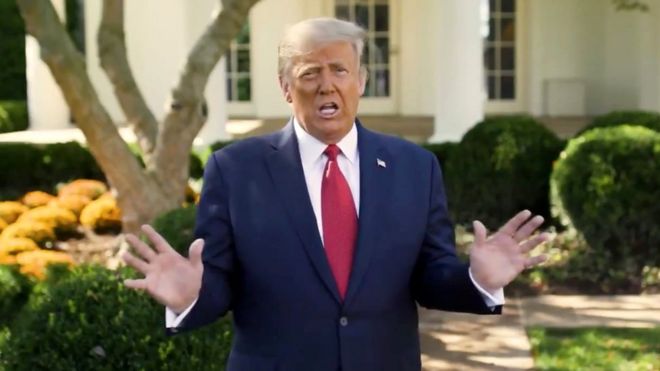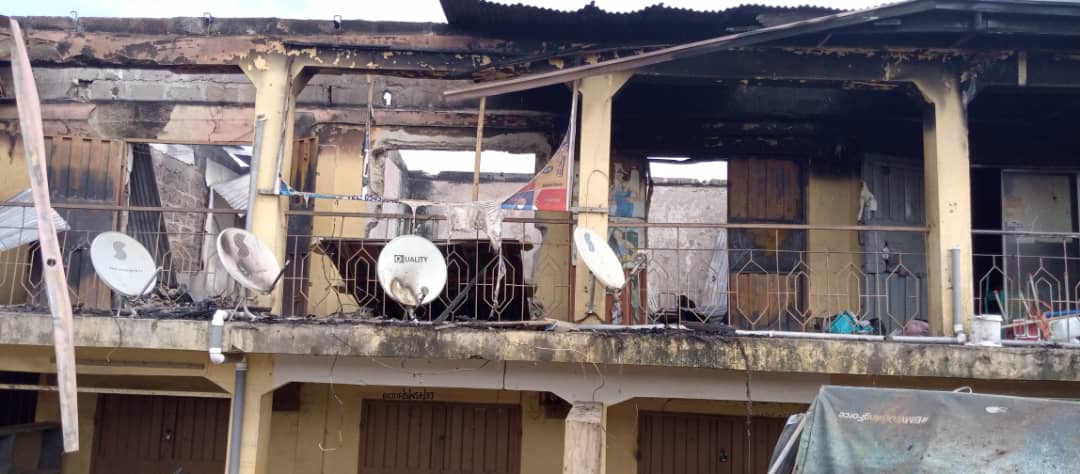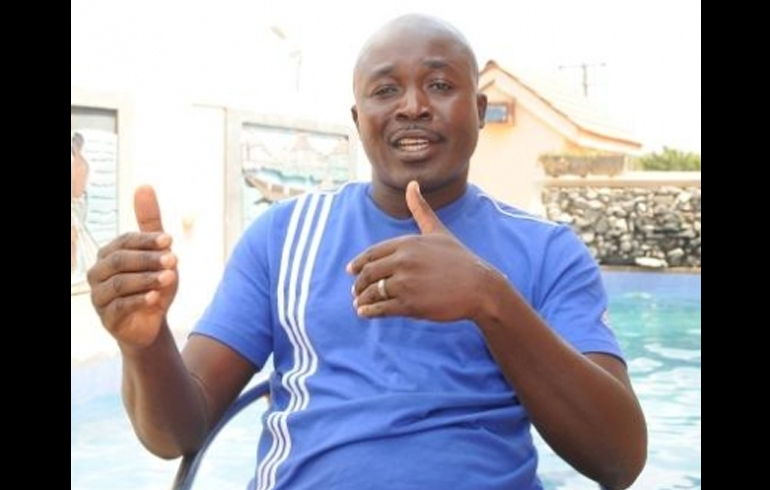US President Donald Trump has completed his course of treatment for Covid-19 and can return to public engagements this weekend, his physician has said.
Dr Sean Conley said the president had responded “extremely well” to medication and had “remained stable”.
Mr Trump later said he would probably take another Covid test on Friday and hoped to hold a rally over the weekend.
The president earlier pulled out of next Thursday’s TV debate with Democratic rival Joe Biden.
He said he was “not going to waste my time on a virtual debate” after organisers said it would have to take place remotely because Mr Trump had tested positive for coronavirus.
The move sparked a row about how and when further debates would take place.
Meanwhile, House Speaker Nancy Pelosi, the most powerful Democrat in Washington, said she planned to introduce legislation on Friday to establish a commission to assess Mr Trump’s fitness for office.
A statement announcing the move said the commission would be set up under the 25th Amendment, which outlines how a sitting president can be stripped of power if they are deemed unable to conduct the duties of the office.
Ms Pelosi told reporters on Thursday that serious questions concerning Mr Trump’s health were still unanswered, and described the president as being in an “altered state”.
Any serious consideration of the measure is unlikely, but it will serve as a political tool to raise questions about Mr Trump’s health.
Mr Trump called Ms Pelosi “crazy” and said she was “the one who should be under observation”.
What’s the latest on Trump’s health?
In a memo released by the White House on Thursday evening, Dr Conley said Mr Trump was displaying no signs “to suggest progression of illness”.
“Saturday will be day 10 since [last] Thursday’s diagnosis, and based on the trajectory of advanced diagnostics the team has been conducting, I fully anticipate the president’s safe return to public engagements at that time,” the memo added.
Earlier this week, however, Dr Conley had said that if the president’s condition remained the same or improved throughout the weekend and into Monday, “we will all take that final, deep sigh of relief”.
Speaking to Fox News late on Thursday, Mr Trump said he was feeling “really good” and hoped to hold a campaign rally on Saturday evening, possibly in Florida.
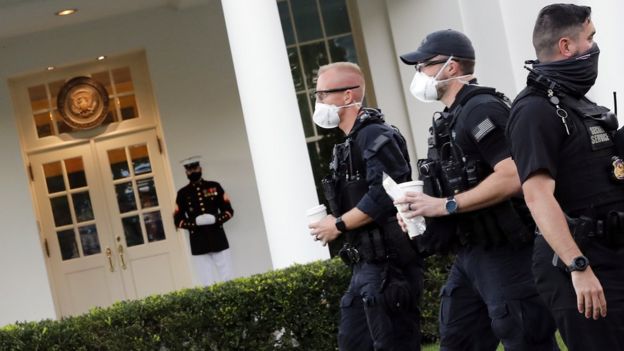
Questions remain about when the president first became infected and whether he could still be contagious.
And although the names of many people who have interacted with the president and tested positive are now known, it remains unclear just how many were exposed at the White House. New Covid safety measures are in place there.
One of the top Republicans, Senate majority leader Mitch McConnell, said on Thursday that he had not been to the White House since 6 August because its approach to handling Covid with social distancing and masks was “different from mine and what I suggested we do in the Senate”.
How did the debate row unfold?
It began with the Commission on Presidential Debates announcing candidates would take part in the Miami debate on 15 October “from separate remote locations… to protect the health and safety of all involved”.
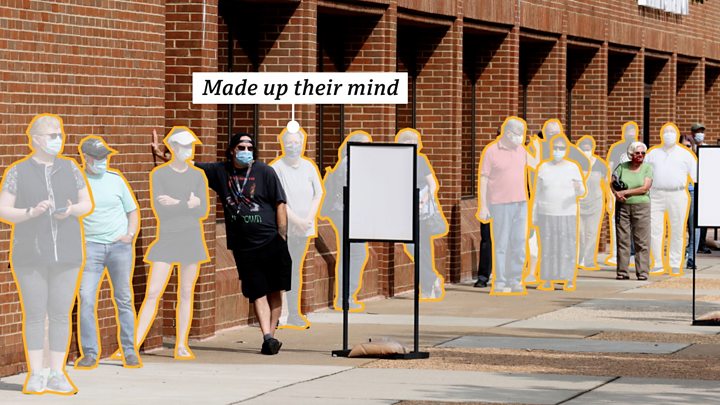
This infuriated the president who, in a phone-in interview with Fox Business Channel, said he was not prepared to “sit behind a computer, ridiculous”.
Mr Biden said the president “changed his mind every second” and his campaign team added that Mr Trump “clearly does not want to face questions from the voters”.
The Trump campaign answered back, with manager Bill Stepien saying the commission’s decision to “rush to Joe Biden’s defence” was “pathetic,” adding that Mr Trump would hold a rally instead on the same date.
The Biden team then proposed the town-hall style debate, set for Miami, should go ahead on 22 October instead.
This brought a brief moment of agreement, on the date at least.
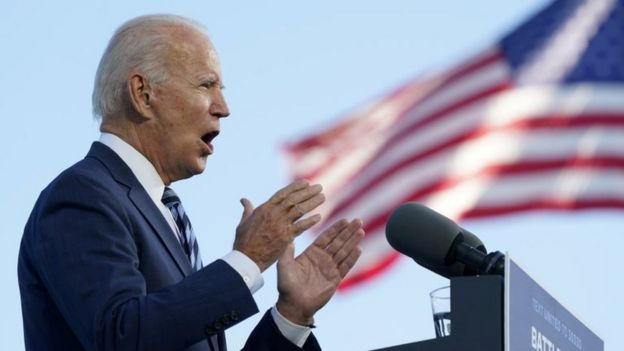
However, the Trump team said there should be a third face-to-face debate – on 29 October, just five days before polling.
But the Biden team said that debates could only be scheduled on the three dates already agreed: 29 September, 15 October and 22 October.
On 15 October, Mr Biden will now take part in his own primetime event on ABC answering questions from voters.
Quite what format any Biden-Trump debate takes now is hard to pin down.
The first presidential debate on 29 September had descended into insults and interruptions. The vice-presidential debate, held on Wednesday night between Mike Pence and Kamala Harris, was a far more measured affair.
The US election will be held on 3 November. Latest opinion polls suggest that Mr Biden’s lead has increased since the first debate and the president’s coronavirus diagnosis. The Democratic candidate has a steady single-digit lead in the handful of key US states that will decide who wins the White House.
Six million ballots have already been cast in early voting.

What’s the 25th Amendment and why are Democrats talking about it?
The 25th Amendment was introduced after the 1963 assassination of President John F Kennedy, to clarify issues around the transfer of presidential powers.
The Democrats are focusing on a clause – Section Four – allowing a president to be removed from office against their will because of physical or mental incapacity.
The powers of the president have been temporarily transferred before – such as when Ronald Reagan was shot and wounded in 1981 and George HW Bush took over – but Section Four has never been invoked.
The amendment says it can only be used if the vice-president plus either a majority of the 15 US cabinet secretaries or another body, like Congress, agrees. Even then, the president can appeal.
It seems the Democrats – meeting later today – are planning to set up the mechanisms which would enable Congress to have its say on whether the president is unable to discharge his powers.
But really, it’s being seen as a political move to stoke questions about Trump’s health. There’s no sign that Vice-President Mike Pence would agree with them, and little legislative time to move the commission forward.
Source: BBC



